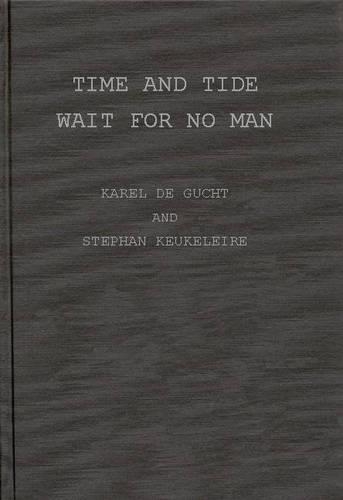
Time and Tide Wait for No Man: The Changing European Geopolitical Landscape
(Hardback)
Publishing Details
Time and Tide Wait for No Man: The Changing European Geopolitical Landscape
By (Author) Karel De Gucht
By (author) Stephan Keukeleire
Bloomsbury Publishing PLC
Praeger Publishers Inc
30th November 1991
United States
Classifications
Tertiary Education
Non Fiction
Geopolitics
320.12
Physical Properties
Hardback
256
Width 156mm, Height 235mm
567g
Description
In his foreword to this work, Valery Giscard d'Estaing characterizes the recent changes in Central and Eastern Europe as a great victory for the values of liberal democracy and a testament to the firmness and cohesion of the Atlantic Alliance. But as Karel De Gucht and Stephen Keukeleire go on to point out, these events were neither a necessity nor an accident, as they were the consequence of many small steps and measures whose effects were incalculable at the time as well as of fundamental long-term developments. De Gucht and Keukeleire see these developments as the building blocks for Europe's future and the opportunities for choice that could allow these European nations to once again take control of their history. Giscard d'Estaing's foreword and the authors' preface set the stage for a complete discussion of the myriad elements that have gone into the European upheaval. The work then explores a wide range of events and topics that had and will further have an impact of the formation of the new Europe, including growing doubts about the United States and nuclear deterrence, French independence, the pressure for reform in the Soviet Union and in Eastern Europe, and the growing role of the European Community. Also discussed at length is the nation of Germany, its view of its own identity, the change in the German perception of security, and the German contribution to the European upheaval. The authors conclude their book with a policy-oriented blueprint for a future European security structure.
Reviews
Although this book carries a somewhat poetic title, its contents are more accurately captured in the subtitle. De Gucht (a Belgian member of the European Parliament) and Keukeleire (University of Louvain) have produced a straightforward, dispassionate, insightful analysis of how the 1980s transformed Western Europe's political landscape. They focus heavily on Germany, pointing out that at least since the early 1980s that country was undergoing an identity crisis that called into question many premises on which the postwar European order rested. The authors also examine why doubts about the US nuclear guarantee of European security have proven impossible to allay. They close by considering events during the late 1980s, up to find including the collapse of the Berlin Wall. Any book on modern Europe risks being overtaken by events, but the analysis here is fresh and timely. In this extended analytical essay, the authors provide little new information, but give a thorough review of secondary material and present original, at times provocative, insights. Recommended for specialists, upper-division undergraduates, graduate students, and general readers.-Choice
The book is really a three-for-one bargain: a journalistic narrative of the events that led to 1989, a discussion of policy alternatives, and, finally, a metahistorical meditation.-The Annals of the American Academy
"The book is really a three-for-one bargain: a journalistic narrative of the events that led to 1989, a discussion of policy alternatives, and, finally, a metahistorical meditation."-The Annals of the American Academy
"Although this book carries a somewhat poetic title, its contents are more accurately captured in the subtitle. De Gucht (a Belgian member of the European Parliament) and Keukeleire (University of Louvain) have produced a straightforward, dispassionate, insightful analysis of how the 1980s transformed Western Europe's political landscape. They focus heavily on Germany, pointing out that at least since the early 1980s that country was undergoing an identity crisis that called into question many premises on which the postwar European order rested. The authors also examine why doubts about the US nuclear guarantee of European security have proven impossible to allay. They close by considering events during the late 1980s, up to find including the collapse of the Berlin Wall. Any book on modern Europe risks being overtaken by events, but the analysis here is fresh and timely. In this extended analytical essay, the authors provide little new information, but give a thorough review of secondary material and present original, at times provocative, insights. Recommended for specialists, upper-division undergraduates, graduate students, and general readers."-Choice
Author Bio
KAREL DE GUCHT has been a member of the European Parliament since 1980, representing Belgium. A published author and lawyer by profession, he is a managing partner of a development capital investment company. STEPHAN KEUKELEIRE is a researcher in the International Relations section of the Department of Political and Social Sciences at the University of Louvain, Belgium. He is the author of numerous articles in scholarly journals.
